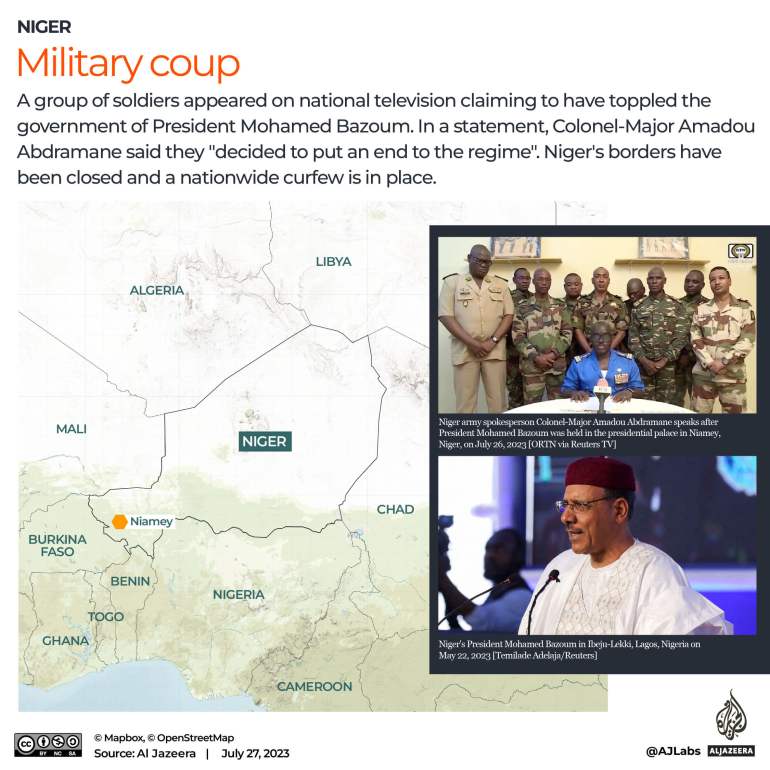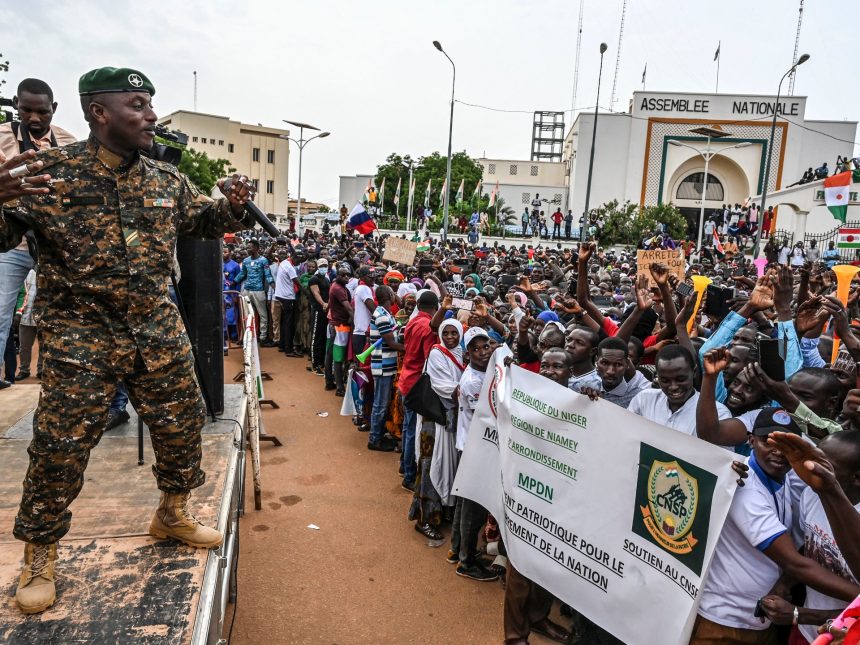Military government also authorised troops from neighbouring Mali and Burkina Faso to come to its defence, raising the stakes in a standoff with other West African nations threatening force.
Niger’s military leadership asked the French ambassador to depart the country – a move further escalating the international crisis in the West African nation after a coup that deposed the democratically elected president.
Niger’s military government also authorised troops from neighbouring Mali and Burkina Faso on Friday to come to its defence, raising the stakes in a standoff with other West African nations threatening force to reinstate Niger’s democratically elected president.
French Ambassador Sylvain Itte was asked to leave Niger within 48 hours in a letter that accused him of ignoring an invitation for a meeting with the foreign ministry.
The letter dated Friday, also cited “actions of the French government contrary to the interests of Niger” as among the reasons for Itte’s expulsion.
France’s foreign ministry on Friday said Niger’s “putschists have no authority” to ask its ambassador in Niamey to leave.
“The ambassador’s approval comes solely from the legitimate elected Nigerien authorities,” AFP news agency quoted an unnamed official as saying.
Niger, a former French colony, was France’s partner before last month’s coup in the fight against armed groups. A growing wave of anti-French sentiment has followed recent coups in the region with some locals accusing the European country of interfering in their affairs.
French President Emmanuel Macron sharply criticised Niger’s coup-makers on Thursday and demanded the release of deposed President Mohamed Bazoum.
The military leader, General Abdrahmane Tchiani, signed two executive orders authorising the “security forces of Burkina Faso and Mali to intervene on Niger territory in the event of aggression”, military official Oumarou Ibrahim Sidi said late Thursday after hosting a delegation from the two countries in the Nigerien capital, Niamey.
Sidi did not provide further details about the military support from the two countries whose military regimes have said any use of force by the West African bloc ECOWAS against Niger’s military government would be treated as an act of war against their own nations.
The agreement was the latest of several actions taken by Niger’s mutinous soldiers to defy sanctions and consolidate a military leadership they say will rule for up to three years, further escalating the crisis after last month’s coup in the country of more than 25 million people.
‘Still on the table’
Niger was seen as one of the last democratic countries in the Sahel region below the Sahara Desert that Western nations could partner with against growing violence by armed groups.
The ECOWAS commission president, Omar Alieu Touray, said on Friday that the bloc’s threat to use force to reinstate Bazoum is “still on the table”, rejecting the three-year transition plan.
Eleven of the bloc’s 15 countries – not including the military-ruled countries of Mali, Burkina Faso, Guinea and Niger itself – have expressed commitments to deploy troops to restore democracy in Niger once a decision is made to intervene.
ECOWAS leaders say they cannot accept another coup in their region.
“Even now, it is not too late for the military to reconsider its action and listen to the voice of reason as the regional leaders will not condone a coup d’etat,” Touray told reporters in Abuja.
“The real issue is the determination of the community to halt the spiral of coup d’etats in the region.”









